Charged Particle Tracing Blog Posts
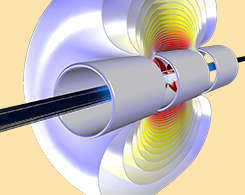
Focusing on Einzel Lenses with Particle Tracing Simulation
You can use electrostatics analysis and charged particle tracing to better understand einzel lens systems and optimize their designs.
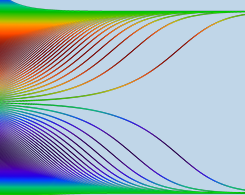
Benchmark Model Shows Reliable Results for Inertial Focusing Analysis
Inertial focusing involves the migration of particles through a channel. This benchmark model analyzes particle behavior in an inertial focusing process with validated, reliable results.
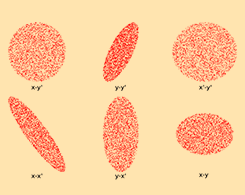
Sampling from Phase Space Distributions in 3D Charged Particle Beams
Learn how to sample the initial positions and velocities of 3D beam particles from the transverse phase space distribution. Part 3 of a series on modeling charged particle beams.
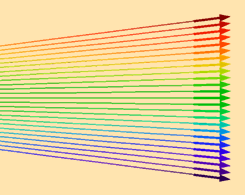
Phase Space Distributions and Emittance in 2D Charged Particle Beams
We discuss the concepts of phase space and emittance as they apply to the release of ions or electrons in beams. Part 2 of a series on phase space distributions in beam physics.
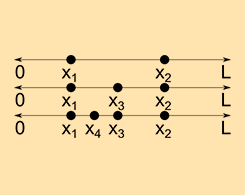
Sampling Random Numbers from Probability Distribution Functions
Get a comprehensive background on probability distribution functions and the different ways you can sample random numbers from them in COMSOL Multiphysics®. Part 1 of a series on beam physics.
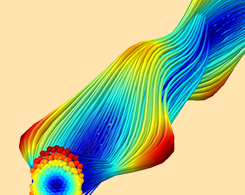
Particle Tracing in a Component of a Quadrupole Mass Spectrometer
Use multiphysics simulation to analyze the design of quadrupole mass filters (the key component of quadrupole mass spectrometers) and investigate the effect of fringe fields on these devices.
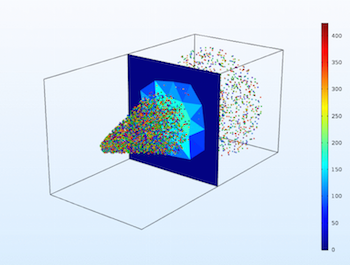
Different Ways to Count Particles in COMSOL Multiphysics
There are 3 ways you can count particles in your particle tracing simulations in COMSOL Multiphysics: during postprocessing, using accumulators, or with the Particle Counter feature.
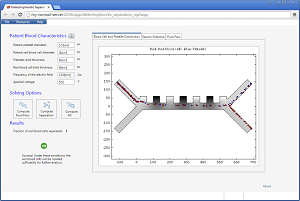
Dielectrophoretic Separation
Dielectrophoresis is a phenomenon in which an electric field is used to control the movement of electrically neutral particles. Learn about how to model this effect in both DC and AC fields.
